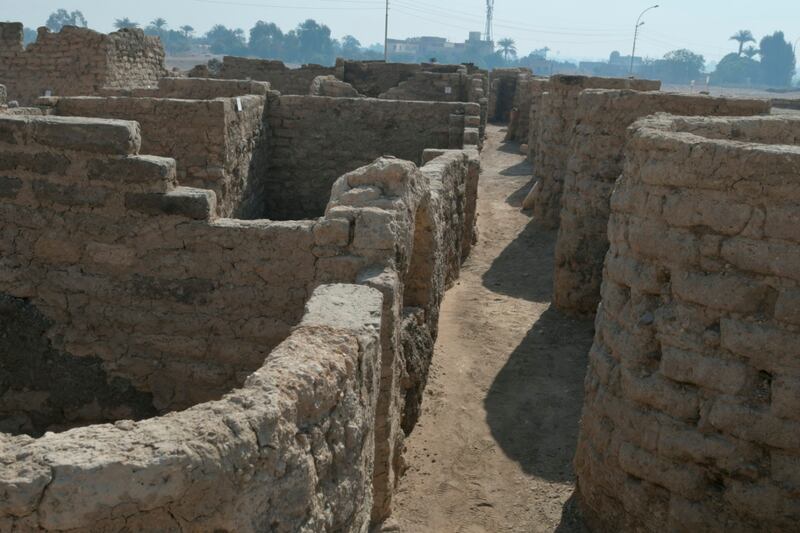An archaeological mission said Thursday it has found a 3,000-year-old “lost golden city” in Egypt, BBC News reports.
The lost city — which was known as Aten — was allegedly founded by King Amenhotep III, who was the ninth king of ancient Egypt’s 18th dynasty. He reportedly ruled the nation from 1391 to 1353 BC.
- The discovery “could be the most significant find in Egypt since the tomb of the boy king Tutankhamen,” according to The Washington Post.
How the city was discovered
Egyptologist Zahi Hawass made the discovery, saying it was near Luxor, which is near the home of the Valley of Kings, The Guardian reports.
- “The Egyptian mission under Dr. Zahi Hawass found the city that was lost under the sands,” the archeology team said. “The city is 3,000 years old, dates to the reign of Amenhotep III, and continued to be used by Tutankhamun and Ay.”
- Hawass said: “Many foreign missions searched for this city and never found it.”
Per The Guardian, the team started excavating the area in September 2020.
- “Within weeks, to the team’s great surprise, formations of mud bricks began to appear in all directions,” the statement from researchers said, according to The Guardian. “What they unearthed was the site of a large city in a good condition of preservation, with almost complete walls, and with rooms filled with tools of daily life.”
Why it matters:
View Comments
Betsy Bryan, an Egyptology professor at Johns Hopkins University who was a part of the mission, said the finding “will give us a rare glimpse into the life of the ancient Egyptians.”
- “The discovery of this lost city is the second most important archaeological discovery since the tomb of Tutankhamun,” Bryan said, according to Bloomberg.


